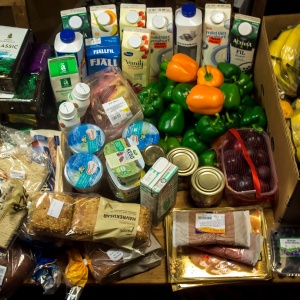There has been an increase in the number of people requiring ‘food aid’ in the UK. Food aid includes a range of initiatives which provide food to people in need, including food banks, meal projects, soups runs, food vouchers and community care projects such as meals on wheels. Policy makers, along with the media and the wider public, are now engaging with some of the questions such initiatives raise.
The aim of this report, carried out by the Food Ethics Council and the University of Warwick and commissioned by Defra, was to improve the understanding of the ‘food aid’ landscape in the UK and the ‘at risk’ individuals who access this provision, how they do so, and why. The research addresses the following key questions: who makes use of food aid and why; what types of food aid are available and whether there are trends in their use; the impact of food aid provision on its recipients and local communities; and some of the key benefits and drawbacks of different types of food aid provision.
The review encountered a lack of systematic documentation of the range of food aid initiatives and their practices. Nevertheless it does offer four key conclusions:
- Those providing food aid, formally and informally, are consistently reporting an increase in demand, both in terms of new requests for help, and in terms of those who have been helped continuing to ask for food. Critical factors driving these actions are described in terms of ‘crises’ in a range of circumstances, but particularly household income, and often underpinned by on-going problems of low income, rising food (and other) costs and increasing indebtedness. This growing demand may have contributed to more food aid being provided, through existing and new structures. It notes however that there is no systematic evidence on the impact of increased supply and hypotheses of its potential effects are not based on robust evidence.
- Households employ multiple strategies for trying to deal with food insecurity; these may, or may not, include accessing temporary food aid. International evidence is that it is only after other main strategies have been employed (including changes to shopping and eating habits, cutting back on other outgoings, and turning to family and friends for help) that the most food insecure households may turn to food aid. Even then, there are many reasons why some households do not use food aid
- The wider literature review and UK case study research suggests that where provision is adequate, appropriate and tailored to the needs of users, food aid may be able to relieve short-term symptoms of food insecurity. However food aid does not address the underlying causes of household food insecurity.
- The totality of the evidence consulted for this report indicates that those involved in food security policy and other responses – from across government, business and civil society – require an ongoing focus on both the short and long-term causes of household food insecurity to achieve the best outcomes, even in the face of an increasingly high profile food aid landscape.
Read the full report here. You can also find press-briefings here and here.
Read more about food security on our website here and see other reports from and information concerning the Food Ethics Council here.








Post a new comment »